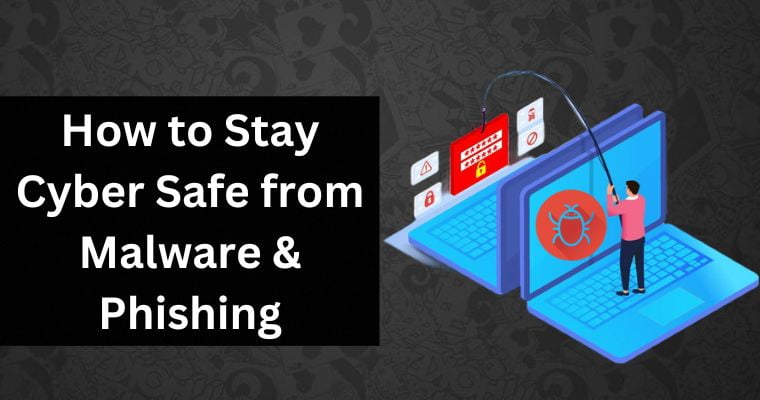Do you want to safeguard your company’s and customers’ sensitive information from online threats and hackers? Then it’s essential that you become well-versed in the basics of cybersecurity.
As a sales professional, understanding security protocols is critical for minimizing risks when dealing with customer data.
In this blog post, we provide an ultimate guide to cybersecurity for sales professionals so that they can understand the importance of having robust safeguards in place while protecting confidential data at all times.
Table of Contents
Basics of Cybersecurity and Its Impact on Sales
Cybersecurity refers to the protection of computer systems and networks from theft, damage, or unauthorized access. With the growing use of technology in sales processes, cyber threats are becoming a significant concern for businesses.
Cybercriminals are always on the lookout for opportunities to exploit security vulnerabilities and steal sensitive information such as customer data, intellectual property, financial records, and more.
In addition to the top skills for sales professionals you can usually see in their resumes, understanding cybersecurity is becoming increasingly important to prevent financial losses and damage to a company’s reputation.
Not only can a data breach lead to financial losses, but it also results in a loss of customer trust and loyalty.
Develop a Culture of Awareness and Vigilance
Having a robust cybersecurity system in place is not enough to protect an organization from online threats. All employees, including sales professionals, should be trained on the basics of cybersecurity and how they can identify and report potential security risks.
It’s crucial to develop a culture of awareness and vigilance within the company so that everyone understands their role in protecting sensitive data.
Sales professionals should be aware of phishing scams, social engineering tactics, and other common cyber attacks that they may encounter while communicating with potential customers.
Plus, they should know how to identify suspicious emails or messages and report them to the IT department immediately.
Not only should sales professionals be knowledgeable about cybersecurity threats, but they should also understand the importance of using secure networks and devices when accessing company data.
It’s essential to have a strict policy in place for connecting to public Wi-Fi or using personal devices for work-related tasks.
Implement Strong Passwords and Keep Track of User Accounts
Using weak and easily guessable passwords is one of the most common mistakes that can leave a company vulnerable to cyber attacks. All employees, including sales professionals, should be trained in creating strong passwords and using different passwords for each account.
Additionally, companies should have strict policies in place for password changes and enforcing multi-factor authentication to secure user accounts.
It’s also crucial to keep track of user accounts and revoke access immediately when an employee leaves the company. Many security breaches occur due to former employees having access to confidential data, so it’s essential to regularly review and update user accounts.
Keep in mind that passwords are not the only way to secure accounts. Biometric authentication, such as fingerprint or facial recognition, can also be used to add an extra layer of security.
Also, it’s important to regularly update software and applications to ensure that security patches are in place.
Utilize Encryption to Protect Data in Transit
Encryption is the process of converting data into a code to prevent unauthorized access. It’s critical to use encryption when sending and receiving sensitive information over the internet, such as credit card numbers or personal customer information.
This ensures that even if the data is intercepted, it cannot be read by anyone without the decryption key.
Sales professionals should be trained on how to encrypt emails and other forms of communication that contain confidential data. Additionally, the company should have policies in place for secure file sharing and storage to protect customer data.
Plus, it’s crucial to regularly back up data and have a disaster recovery plan in case of a cyber-attack or data breach. This ensures that even if sensitive information is compromised, the company can quickly recover and resume operations.
Use Two-Factor Authentication for Access to Sensitive Systems
Two-factor authentication adds an extra layer of security by requiring a user to provide two forms of identification before accessing sensitive systems or data. It can be in the form of a code sent to a mobile device, biometric authentication, or physical tokens.
Sales professionals who have access to customer data should be required to use two-factor authentication and follow strict protocols when handling sensitive information. This helps to prevent unauthorized access and limits the risk of data breaches.
Keep in mind that implementing two-factor authentication does not mean the company is completely immune to cyber-attacks, but it significantly reduces the chances of a successful breach.
Also, companies should regularly review and update their security protocols to stay ahead of new threats.
Monitor Network Activity for Unusual or Suspicious Behavior
Regular monitoring of network activity is crucial to detect any unusual or suspicious behavior that could indicate a cyber-attack. Companies should have systems in place to monitor and analyze network traffic, identify potential threats, and take action immediately.
Sales professionals can also play a role in reporting any suspicious activity they may come across while communicating with customers or accessing company data. This allows the IT department to investigate and address any potential security risks promptly.
Remember, cybercriminals are always evolving their tactics to bypass security measures. Therefore, it’s essential to continuously monitor and update security protocols to keep up with the changing landscape of cybersecurity threats.
To sum up, it’s of paramount importance to not ignore cybersecurity. Organizations need to be proactive in attacking potential flaws in their security architecture and create a culture of awareness that encourages the entire team to possess a dedicated attitude about cybersecurity.
The elements discussed – understanding the impact on sales, training your staff, implementing strong passwords, utilizing encryption, using two-factor authentication for access to sensitive systems, and monitoring network activity.
These serve as fundamental steps that every organization should take to ensure proper data security and prevent cyberattacks.
By implementing these measures today, businesses can set a strong foundation for better data protection and stronger overall sales performance tomorrow. Now is the time to take action – invest in properly securing your business’s infrastructure from cyber threats.


